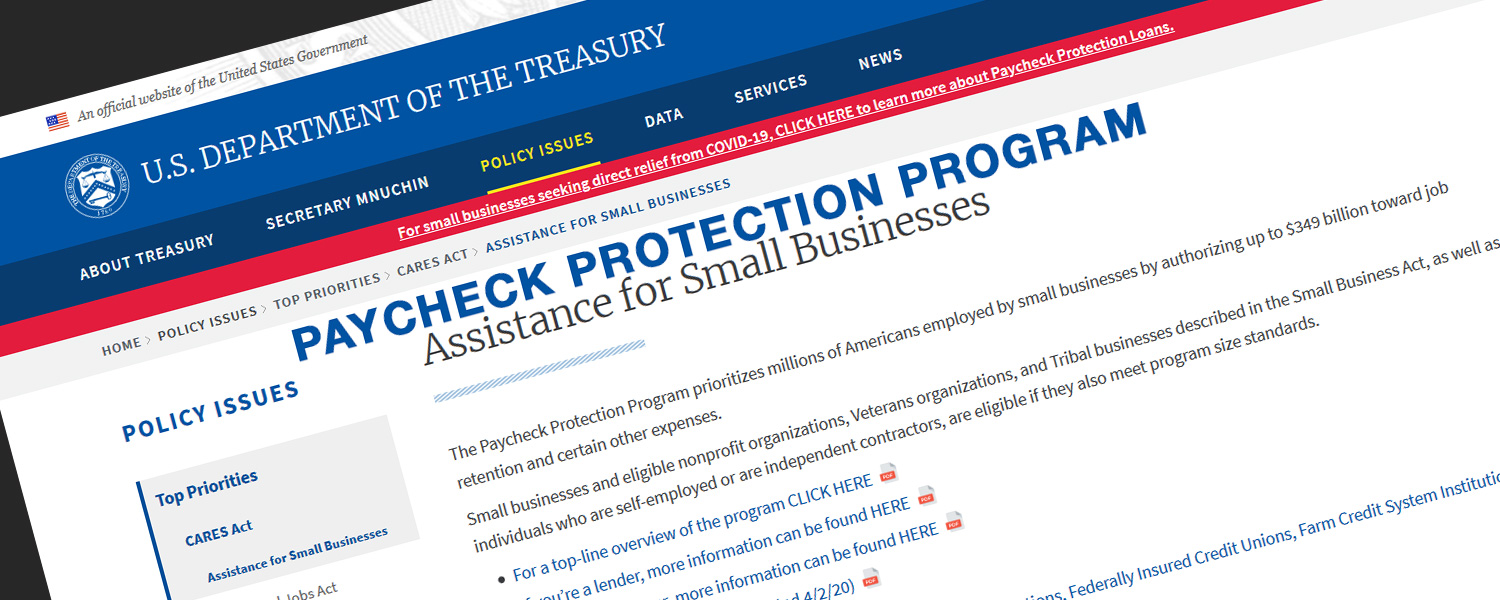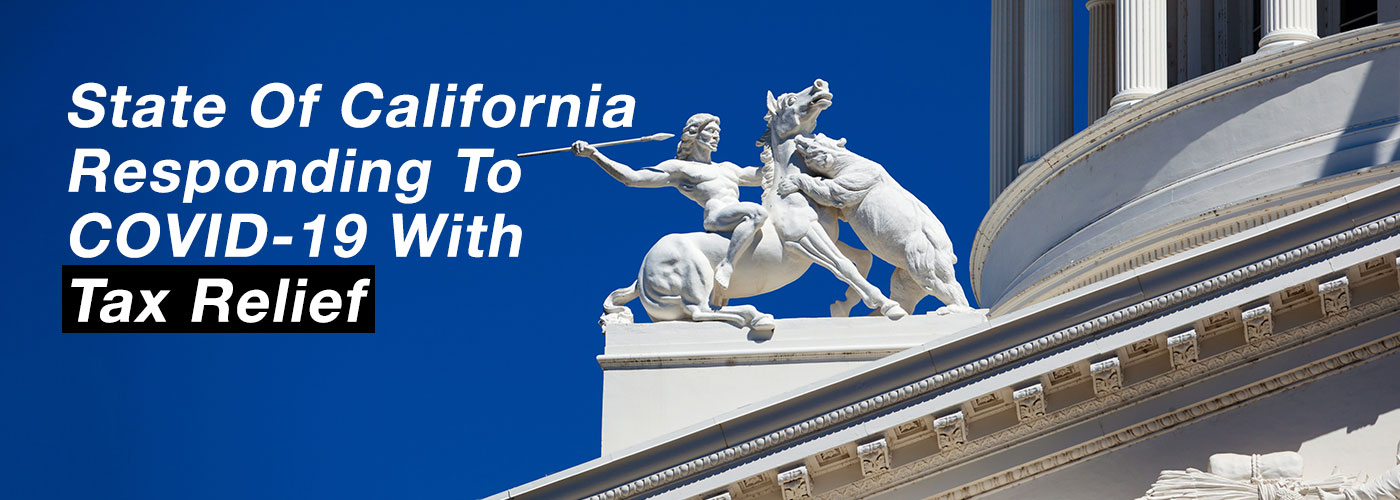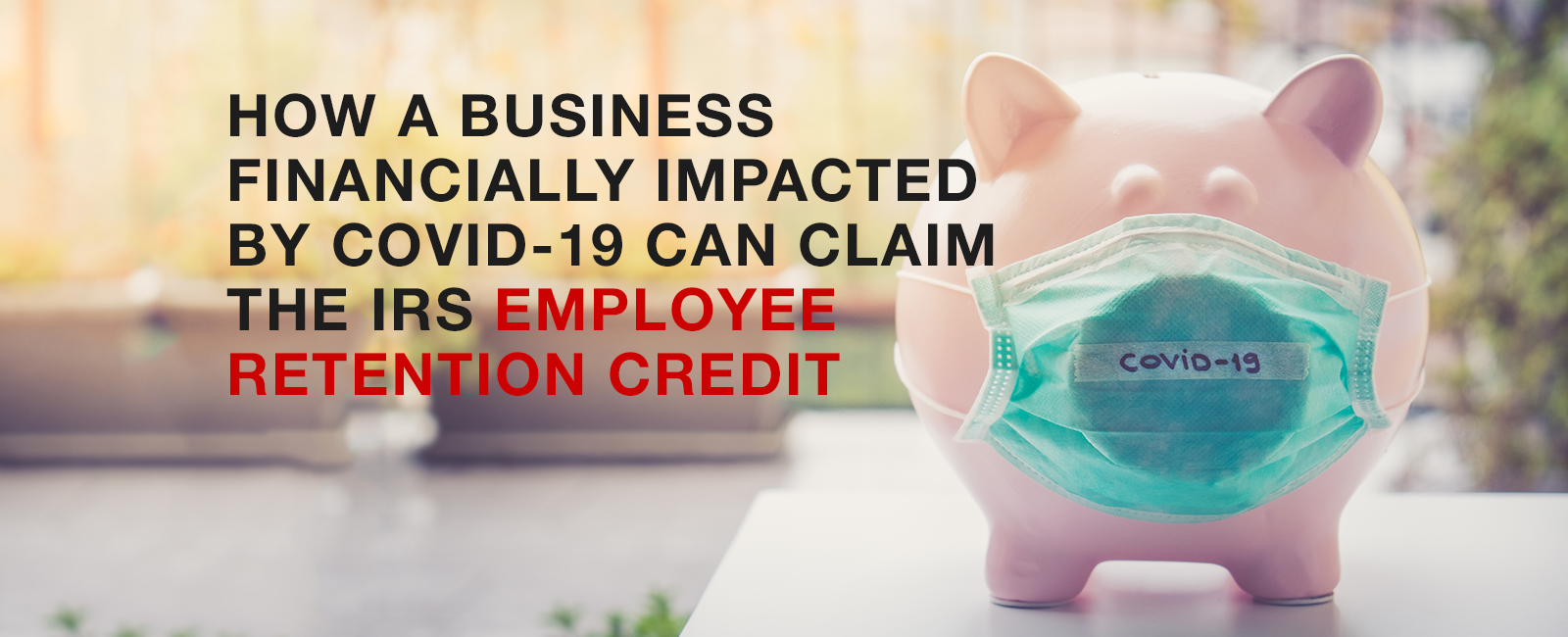IRS Continues To Expand Tax Relief From COVID-19
IRS Continues To Expand Tax Relief From COVID-19
On April 9, 2020 the IRS announced additional relief for taxpayers extending deadlines to July 15, 2020 including the 2nd quarter estimated tax payment that would have been due June 15, 2020.
IRS Coronavirus Tax Relief
The IRS has established a special section focused on steps to help taxpayers, businesses and others affected by the coronavirus and as information becomes available, the IRS will be updating this special page on its website.
President Donald Trump declared the coronavirus pandemic a national emergency. Therefore, under Sec. 7508A, the declaration of an emergency under the Robert T. Stafford Disaster Relief and Emergency Assistance Act, P.L. 100-707, the IRS is allowed to delay certain tax filing and payment deadlines.
IRS And Treasury Department Guidance For The 2019 Tax Season
On March 18, 2020 the Treasury Department and the IRS issued the first formal guidance. The Treasury Department and IRS are extending the due date for Federal income tax payments and Federal income tax returns due April 15, 2020, to July 15, 2020, for payments due of up to $10 million for corporations and up to $1 million for individuals – regardless of filing status – and other unincorporated entities. Associated interest, additions to tax, and penalties for late payment will also be suspended until July 15, 2020.
Click here for the press release issued by the Treasury Department.
Click here for Notice 2020-17 issued by the IRS.
Click here for the March 21, 2020 press release issued by the IRS.
Click here for the April 9, 2020 press release issued by the IRS.
This relief is available with respect to:
- Federal income tax payments (including payments of tax on self-employment income) due on April 15, 2020, in respect of an affected taxpayer’s 2019 taxable year, and
- Federal estimated income tax payments (including payments of tax on self-employment income) due on April 15, 2020 and now for June 15, 2020, for an affected taxpayer’s 2020 taxable year.
- All taxpayers that have a filing or payment deadline falling on or after April 1, 2020, and before July 15, 2020. Individuals, trusts, estates, corporations and other non-corporate tax filers qualify for the extra time.
- All Americans who live and work abroad to file their 2019 federal income tax return and pay any tax due.
Taxpayers do not need to file any additional forms or call the IRS to qualify for this automatic federal tax filing and payment relief. Taxpayers who need additional time to file beyond the July 15 deadline, can request a filing extension by filing Form 4868 for individuals and Form 7004 for corporations.
But if you are due a refund you should file as soon as possible. The IRS states that most tax refunds are still being issued within 21 days.
2016 Unclaimed Refunds – Deadline extended to July 15, 2020
The April 9, 2020 press release also states that for 2016 tax returns, the normal April 15th deadline to claim a refund has also been extended to July 15, 2020. The law provides a three-year window of opportunity to claim a refund. If taxpayers do not file a return within three years, the money becomes property of the U.S. Treasury. The law requires taxpayers to properly address, mail and ensure the tax return is postmarked by the July 15, 2020, date.
IRS Commissioner Chuck Rettig’s Announcement Of “The IRS People First Initiative”
On March 25, 2020 the IRS issued a press release announcing a sweeping series of steps to assist taxpayers by providing relief on a variety of issues ranging from easing payment guidelines to postponing compliance actions in what it calls “The IRS People First Initiative”.
These new changes include issues ranging from postponing certain payments related to Installment Agreements and Offers in Compromise to collection and limiting certain enforcement actions. The IRS will be temporarily modifying the following activities as soon as possible; the projected start date will be April 1, 2020 and the effort will initially run through July 15, 2020. During this period, to the maximum extent possible, the IRS will avoid in-person contacts.
Highlights of the key actions in the IRS People First Initiative include:
Relief For Existing Installment Agreements –For taxpayers under an existing Installment Agreement, payments due between April 1, 2020 and July 15, 2020 are suspended. Taxpayers who are currently unable to comply with the terms of an Installment Payment Agreement, including a Direct Deposit Installment Agreement, may suspend payments during this period if they prefer. Furthermore, the IRS will not default any Installment Agreements during this period. By law, interest will continue to accrue on any unpaid balances.
Preservation Of Offers in Compromise (OIC) – The IRS is taking several steps to assist taxpayers in various stages of the OIC process:
- Pending OIC applications – The IRS will allow taxpayers until July 15, 2020 to provide requested additional information to support a pending OIC. In addition, the IRS will not close any pending OIC request before July 15, 2020, without the taxpayer’s consent.
- OIC Payments – Taxpayers have the option of suspending all payments on accepted OICs until July 15, 2020, although by law interest will continue to accrue on any unpaid balances.
- Delinquent Return Filings – The IRS will not default an OIC for those taxpayers who are delinquent in filing their tax return for tax year 2018. However, taxpayers should file any delinquent 2018 return (and their 2019 return) on or before July 15, 2020.
Limited Suspension Of Field Collection Activities – Liens and levies (including any seizures of a personal residence) initiated by field revenue officers will be suspended through July 15, 2020. However, field revenue officers will continue to pursue high-income non-filers and perform other similar activities where warranted.
Suspension Of New Automated Liens and Levies – New automatic, systemic liens and levies will be suspended during through July 15, 2020.
Suspension Of Passport Certifications to the State Department – IRS will suspend new certifications to the Department of State for taxpayers who are “seriously delinquent” through July 15, 2020. Certification prevents taxpayers from receiving or renewing passports.
Suspension Of Forwarding New Accounts To Private Debt Collection – New delinquent accounts will not be forwarded by the IRS to private collection agencies to work through July 15, 2020.
Limited Suspension Of New Field, Office and Correspondence Audits – Through July 15, 2020, the IRS will generally not start new field, office and correspondence examinations. We will continue to work refund claims where possible, without in-person contact. However, the IRS may start new examinations where deemed necessary to protect the government’s interest in preserving the applicable statute of limitations.
Suspension Of In-Person Meetings – In-person meetings regarding current field, office and correspondence examinations will be suspended through July 15, 2020; however, these examinations can continue remotely, where possible.
Earned Income Tax Credit and Wage Verification Reviews – Taxpayers have until July 15, 2020, to respond to the IRS to verify that they qualify for the Earned Income Tax Credit or to verify their income. Until July 15, 2020, the IRS will not deny these credits for a failure to provide requested information.
Independent Office of Appeals – Appeals employees will continue to work their cases. Although Appeals is not currently holding in-person conferences with taxpayers, conferences may be held over the telephone or by videoconference.
An Opportunity For Taxpayers Who Owe The IRS
Do not think that if you owe the IRS your tax problem will disappear because of the measures being considered by the government. Instead you should be utilizing this valuable time to get yourself prepared so that when activity in this nation regains momentum, you are ready to make the best offer or proposal to take control of your outstanding tax debts.
As a prerequisite to any proposal to the IRS, you must be in current compliance. That means if you have any outstanding income tax returns, they must be completed and submitted to IRS.
Also, if you are required to make estimated tax payments, you must be current in making those payments. Fortunately, as we are now in 2020, taxpayers who expect to owe for 2019 should have their 2019 income tax returns done now so that the 2019 liability can be rolled over into any proposal and the requirement to make estimated tax payments will now start for 2020.
Remember that COVID-19 does not alter the tax laws, so all taxpayers should continue to meet their tax obligations as normal. Individuals and businesses should keep filing their tax returns and making payments and deposits with the IRS, as they are required to do.
Also, the IRS will continue to take steps where necessary to protect all applicable statutes of limitations. In instances where statute expirations might be jeopardized during this period and a taxpayer is not agreeing to extend such, the IRS will issue Notices of Deficiency and pursue other similar actions to protect the interests of the government in preserving such statute.
The take away from this – use the Federal government’s downtime to your advantage to prepare for the future.
What Should You Do?
You know that at the Law Offices Of Jeffrey B. Kahn, P.C. we are always thinking of ways that our clients can save on taxes. If you are selected for an audit, stand up to the IRS by getting representation. Tax problems are usually a serious matter and must be handled appropriately so it’s important to that you’ve hired the best lawyer for your particular situation. The tax attorneys at the Law Offices Of Jeffrey B. Kahn, P.C. located in Orange County (Irvine), Los Angeles (including Long Beach and Ontario) and elsewhere in California are highly skilled in handling tax matters and can effectively represent at all levels with the IRS and State Tax Agencies including criminal tax investigations and attempted prosecutions, undisclosed foreign bank accounts and other foreign assets, and unreported foreign income. Also if you are involved in cannabis, check out what a cannabis tax attorney can do for you. And if you are involved in crypto currency, check out what a bitcoin tax attorney can do for you.











 Follow
Follow Follow
Follow